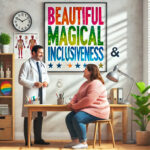Getting ready to write your story
Getting ready to write your story
By June Alexander
Choosing the time to write your story is the first of many factors, for your impression, today, may differ tomorrow. The writing of a life story or memoir requires preparation and planning, and you will find that benefits come in the process as well as the delivery.
You can choose any major theme in your life – for instance, overcoming or adjusting to a major health challenge, or a meaningful hobby, relationship, journey, or career.
Writing about your experience, and sharing it in a safe and supportive environment, can help overcome mental roadblocks, doubts, and reduce your fears about releasing innermost thoughts onto the page.
Separating any negative, self-defeating thoughts from your authentic, healthy-self thoughts may be difficult because the negative force seizes any self-doubt to seduce or shame you into thinking you are not good enough. Alternatively, you may feel your story or secret simply cannot be shared because it is your only tool to cope with each day. Either way, the negative thought aims to imprison you.
Stories about others can help you understand this hold the negative thought has on you. Writing your story for yourself can be helpful too. This process alone can help to define and distance you, as a person, from negative thought. Re-storying your diary entries can assist in stepping back a little and discovering how your life has value and purpose.
You may want to compile a record of events. This can be a helpful step towards correcting misconceptions and misunderstandings. It can also assist in exploring the effect of secrets, and the process of writing can become a release – depending on how your story is shaped, it may inform and educate and even entertain.
Realizing that you can make your own story, hereon, is empowering. Only you can tell your story, and the mere thought of having this to reflect on, and draw on, as years go by, can be sustaining.
You might want to consider refining your private story, to share with family and close
or with the unknown public. However, there are many factors to consider.
Preparing Lessons for Today and Tomorrow
For decades, my diaries reflect a life on hold, while my ED functioned as a helpful and, at times, necessary puppeteer, orchestrating thoughts and behaviors. There was a constant ache of a ‘hole’ within, and a yearning for the reintegration of self with body. However, lacking skills and guidance, I was stuck. When I eventually sought and began treatment, a sustaining thought was “when I get through this, I will write my story”….
Reading and selecting excerpts from these diaries, from childhood to middle age, for my memoir, was painful. I pined for “me’” but reflecting on the record of suffering also was illuminating, helping me to come to terms with the experience.
Trigger Points and the Restorative Role of Diary-Writing
During recovery, my work as a journalist sometimes involved interviewing a young author releasing an “inspirational” memoir on eating disorders. I would feel in awe of their gushing account and think “gosh, they have recovered, so there is hope for me too” and then, “gosh, they are getting on with their lives in a matter of a year or two, and I’m taking decades. I must be horribly weak.”
However, waiting a while before going public may be wise, to enable you to become an observer as well as the participant in your story, and draw on more perspectives in describing your illness.
- For guidance in writing your story, contact me on email: june@junealexander.com
Further reading:
Using Writing as a Therapy for Eating Disorders—The Diary Healer by June Alexander
A Girl Called Tim by June Alexander (memoir)





